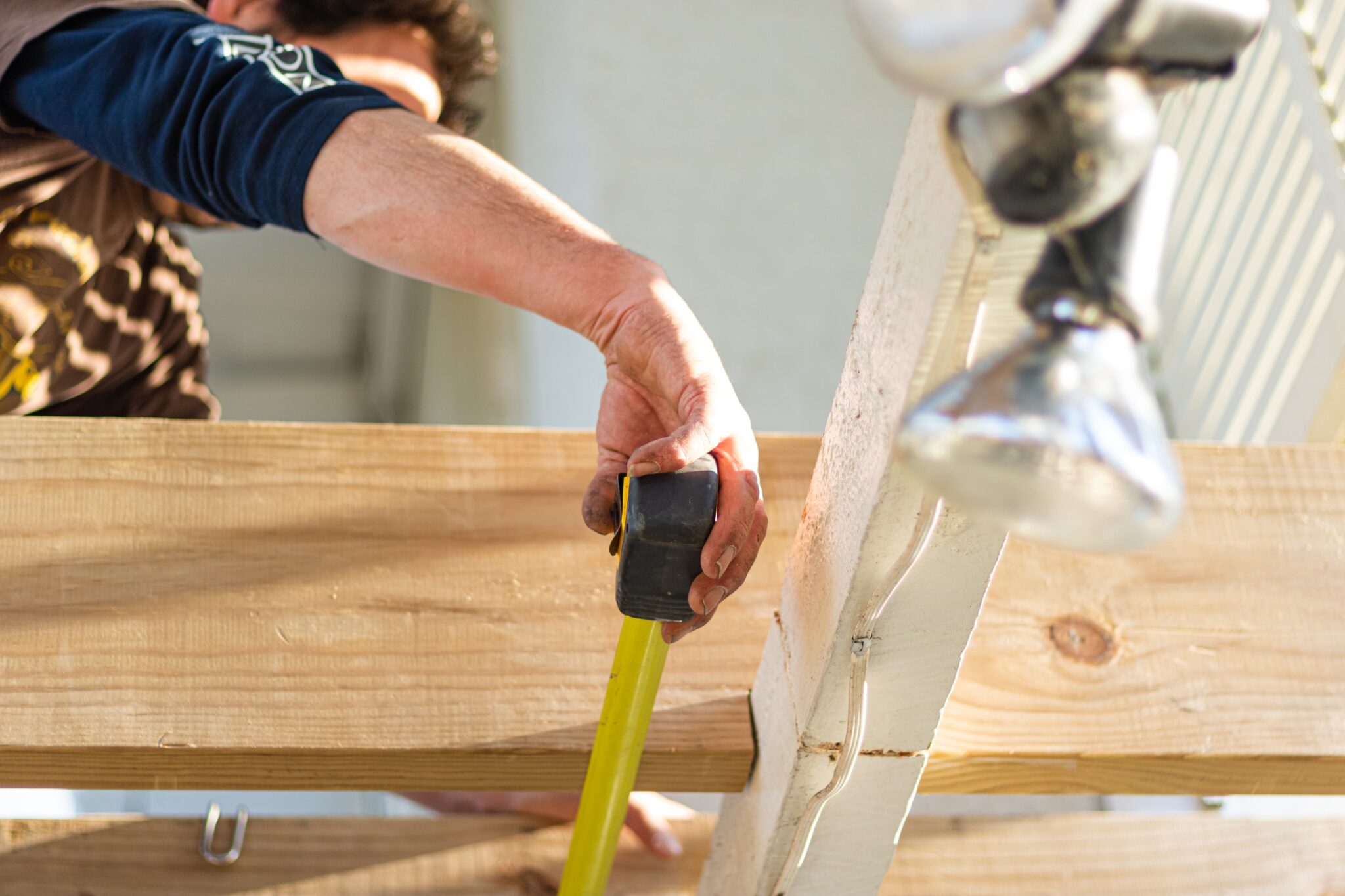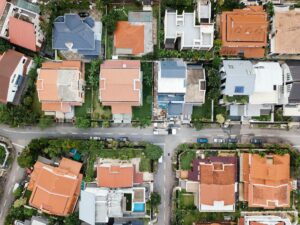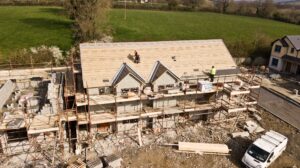
When is a Building Permit Not Required in Los Angeles?
If you’re set to begin development on a building of any kind, you will likely need a building permit before you go forward with the project. Building permits are official approvals that can be issued by a local government agency. The reason that permits are oftentimes needed before construction can begin is to make sure that the project complies with all local building codes and standards.
Building codes are put in place to ensure that the final structure is safe for people to live or work in. If you receive a building permit from the Los Angeles Department of Building and Safety, you will benefit from knowing that your project adheres to all zoning, construction, and land use standards in Los Angeles. Some of the issues that may be addressed during the building permit process include everything from structural integrity and zoning to fire protection and sewer lines.
The permitting process itself can be somewhat lengthy and complicated depending on the size and scope of your project. If there’s a problem with the building plans you submit to the LADBS, you will likely be asked to make revisions to these plans or submit new ones. Any issue that arises during this process will take time to fix, which means that development on the building in question will be delayed by a substantial amount.
If you handle the building permit process by yourself, you could spend months completing revisions and making updates before your permit is officially approved. You can, however, reduce the amount of time it takes to get through this process by hiring an expediter. This type of professional can assist you with the entire permitting process and expedite your construction timelines significantly.
The expediter you hire will be able to identify any issues with your building plans before they’ve been submitted, which reduces the likelihood of delays and revision requests. If you want to make sure that you’re able to get started on development as quickly as possible, consider hiring a permit expediter. Keep in mind that permit requirements vary by state, county, or city. While permits are oftentimes necessary for construction projects, there are also times when they aren’t required in LA, all of which are detailed in the following.
When a Building Permit is NOT Required
Even though you’ll likely need to apply for a building permit before starting development on a project, there are many types of projects that don’t require a building permit in Los Angeles. Knowing what these projects are can help you determine if you will need to apply for a permit yourself. If you’re going to be building a detached accessory building to serve as a storage shed, shade structure, or playhouse, you won’t need a permit. Keep in mind, however, that the building can’t exceed a floor space of 120 square feet or a height of 12 feet. Make sure that the max roof projection doesn’t go higher than 24 inches.
If you want to add a fence to your home that won’t serve as a barrier to a spa, hot tub, or swimming pool, you may not require a permit. However, it’s essential that:
- Concrete or masonry fences are less than six feet in height
- Concrete and masonry fences must be set back from streets, roads, or other public ways by a distance that’s at least the same as the height of your fence
- Fences built from other materials can’t have a height of more than six feet
- Monument signs can’t go above six feet in height
If you are getting ready to add a tank of some kind to your property, a building permit might not be required as long as the tanks aren’t set to store hazardous material. When it comes to steel tanks, these should be supported by a foundation that’s isn’t higher than two feet above grade. Water tanks like rain barrels and cisterns must be supported on grade if the capacity of the tank isn’t larger than 5,000 gallons.
A building permit isn’t needed when building a retaining wall that’s less than four feet tall. The same is true of motion picture, theater, or television sets unless the set is being used as a building. Light standards that are less than 30 feet tall can be constructed without a building permit. If you want to build a tree house, you can do so without a building permit as long as the floor space isn’t larger than 64 square feet. The ceiling height must not exceed six feet. Some additional situations when a building permit isn’t required include:
- Awnings or canopies that are supported by an exterior wall
- Storage buildings or sheds that are smaller than 1,500 square feet
- Portable metal hangers that are less than 2,000 square feet and are used solely to park aircraft
- Oil derricks
- Driveways, decks, and walks that aren’t higher than 30 inches above grade
- Pre-fabricated swimming pools that hold less than 5,000 gallons of water
- Playground equipment that is less than 12 feet tall
- One-story detached animal kennels and cages
- Livestock shelters that aren’t larger than 300 square feet
- Finishing work that includes painting, cabinetry, carpeting, tiling, and papering
- Movable cases, counters, racks, fixtures, and partitions that are less than five feet, nine inches tall
Keep in mind that additional mechanical, electrical, or plumbing permits may be necessary. You should also make sure that your project complies with all local zoning regulations and ordinances. Even if you believe that you can complete your project without first obtaining a building permit, this doesn’t mean that the project can be done in a manner that violates local building codes or ordinances.

Looking into City Permit Regulations
When you’re looking into city permit regulations, keep in mind that permit requirements can vary by city. The requirements that one city maintains can differ completely from another city’s requirements. In Los Angeles, the department that handles building permits is the Los Angeles Department of Building & Safety.
When you’re filling out a building permit application, it’s essential that you focus on the regulations in the city you live in. When you live in Los Angeles, there are numerous types of building permits you can apply for, which include everything from an express permit to a regular plan check.
The type of building permit you apply for mainly depends on the size of the project. For instance, simple home renovations can be done after obtaining an express permit. The primary benefit of seeking an express permit is that you can fill out and submit your application online, which ensures that you don’t spend too much time waiting for an answer.
Small or medium-sized projects only require a counter plan check. Even though you need to submit your application in person at one of the LADBS offices, the application only takes around 45-60 minutes to review before you’ll be able to find out if your permit is approved. For large and complex projects, a regular plan check is necessary. This type of building permit usually takes several weeks to be reviewed. However, this process can be streamlined with the help of a permit expediter.

Complying with Local Building Permit Codes
Some inexperienced developers and builders believe that they can complete work that requires a permit without getting into trouble. However, anyone can report a permit violation, which could pose a problem for you and anyone involved in the project. If you fail to comply with local building permit codes, the city could request that you tear down any non-permitted work. Even if the project has only just begun when this occurs, you would invariably lose a considerable amount of time and money. The city could also asses substantial fines.
If your project isn’t listed earlier among the ones that don’t require a permit, there’s a good chance that you will need to obtain a building permit before any construction could begin. When it comes time to fill out and submit an application, it’s highly recommended that you request help from a permit expediter. The professional you hire will guide you through the entire permitting process and spot any issues that might occur before you submit your application. The experience and skills a permit expediter has will help you save time and reduce development costs.
While permitting requirements differ depending on the city you live in, it’s likely that the construction project you’re set to work on will require a building permit. Even if the project is relatively simple and straightforward, any work that directly impacts electrical, plumbing, or mechanical systems in the vicinity would require a permit. If you’re building a deck or designing a new shed for your home, it’s possible that a building permit won’t be necessary.

Jason Somers, President & Founder of Crest Real Estate
With over 15 years of professional experience in the Los Angeles luxury real estate market, Jason Somers has the background, judgement and track record to provide an unparalleled level of real estate services. His widespread knowledge helps clients identify and acquire income producing properties and value-ad development opportunities.
Learn more about Jason Somers or contact us.



